Angelina Jolie Expresses Support For Iranian Protesters Who Lost Eyes
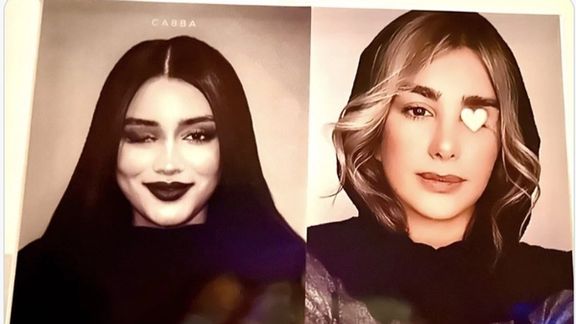
Hollywood star Angelina Jolie has expressed solidarity with dozens of Iranians who lost their eyes to police gunfire during recent antigovernment protests.

Hollywood star Angelina Jolie has expressed solidarity with dozens of Iranians who lost their eyes to police gunfire during recent antigovernment protests.
The American actress and director published pictures of Elahe Tavakolian and Zanyar Tondro, two young protesters who were shot in the eye during nationwide protests in Iran, on her Instagram page on Friday, saying “You aimed at my eyes, but my heart is still beating.”
Jolie further added in the caption that “Thinking of the young Iranians who have suffered eye injuries protesting the killing of Mahsa Amini, like Elahe Tavakolian and Zanyar Tondro. Many survivors have lost sight in one or both eyes. It’s a reminder of the price young Iranians are paying in their struggle for rights and freedoms.”
The Iranian regime used overwhelming force against protesters demanding secular democracy, killing more than 500, injuring thousands and jailing more than 20,000 mainly young protesters.
Earlier, Iranians launched a Twitter storm in support of Tondro, an 18-year-old man who along with his father, left Iran for treatment in Europe in the past weeks, but after their boat capsized, he was arrested by the Turkish police and taken to a refugee camp in the southwestern city of Mugla.
Elahe Tavakolian, a PhD student lost her eye to shotgun pellets fired at protesters by regime security forces.
Many protesters have been shot in the face and have lost one or both eyes during the protests that are still underway after more than six months.
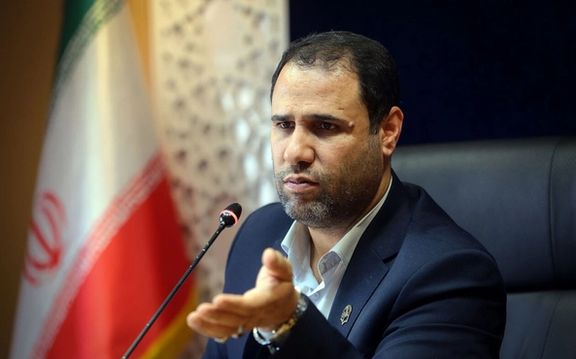
Iran's acting education minister Reza-Morad Sahraei, a life-long Basij operator, has threatened protesting university students and professors with expulsion.
In an audio recording of Sahraei’s meeting at Farhangian University, a public teacher training university where he currently serves as rector, Sharaei says this university is more important than the Revolutionary Guard's universities in Iran and everyone who speaks out against the regime will be identified and expelled.
He said "the red line is the existence of the regime," and anyone who crosses it would not have a place in the university. Anyone who took part in the recent protests, even minimally, will be identified in the near future and will be expelled, he said in the leaked audio. “Professors who would not move in the framework set by the regime will not have a place in this university,” he said, adding, “Record this and tell everyone about it.”
"The regime wants to train forces for itself in Farhangian University, and when someone does not accept the system, they do not belong here," he claimed.
The interim minister has not yet been approved in his post, but his appointment seems in line with President Ebrahim Raisi’s policy of further crackdown on dissident students.
Sahrai, who is already under aspersions about his former position as a tenured professor at the Allameh Tabataba'i University, faces numerous controversies about his academic credentials. He is one of those people who were crowned as professors at Iran’s high-ranking universities thanks to links to the regime’s inner circles.
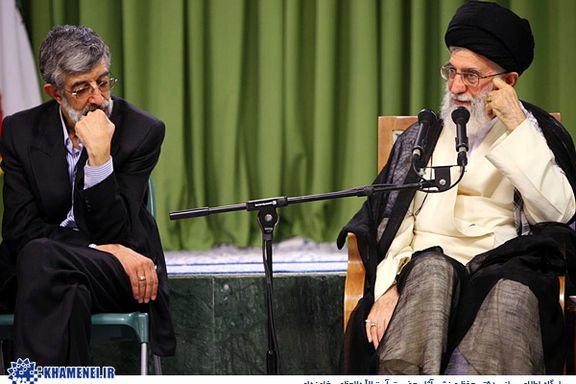
He is closely connected to former parliament speaker Gholam-Ali Haddad-Adel and served as his right-hand man at the Saadi Foundation, a “cultural center” that is tasked with promoting Persian language among non-Persian speakers. Sahraei is the man who was influential in assigning many people as the Islamic Republic’s cultural attachés in several embassies under the guise of Persian teachers.
Although Sahraei’s resume may portray him as a true academic, he is really a regime agent in camouflage of a university professor. He reportedly holds a doctorate in linguistics from Allameh Tabatabai University and is a full professor there, but several graduate students who were forced to work on their theses with him as their advisor or supervisor told Iran International that he never helped them in in their academic endeavors and only showed up at the defense presentation sessions to get the credit.
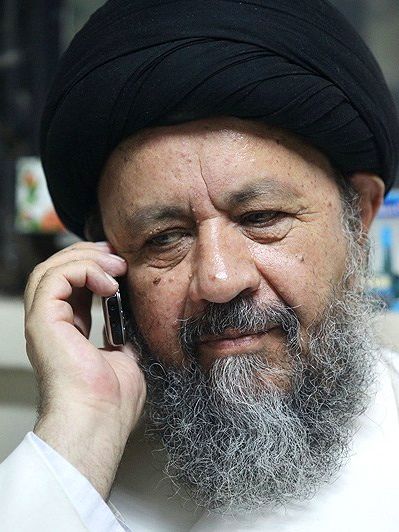
Sahraei was also the man in charge of implementing policies of Sadreddin Shariati, the controversial head of Allameh Tabatabai University who embarked on strict sex segregation at the university in early 2010s. According to information obtained by Iran International, Sahraei is also mired in numerous cases of plagiarism, including his article about “morphological paradoxes.”
Serving as a loyal regime operator for many years, Sahraei is appointed as the new education minister to carry out harsher crackdown on students who have revolted against the Islamic Republic or voiced support for the popular uprising ignited in September 2022 following the death in custody of 22-year-old Mahsa Amini.
Earlier in the month, the ministry of higher education said institutions under its coverage will no longer offer educational and other services to students who do not abide by hijab rules. “All universities and higher education institutions under the coverage of the ministry of sciences, research and technology will not be obliged to offer educational, welfare and other services to the few students who do not abide by the laws and regulations of the universities in this regard,” the ministry said in a statement April 3.
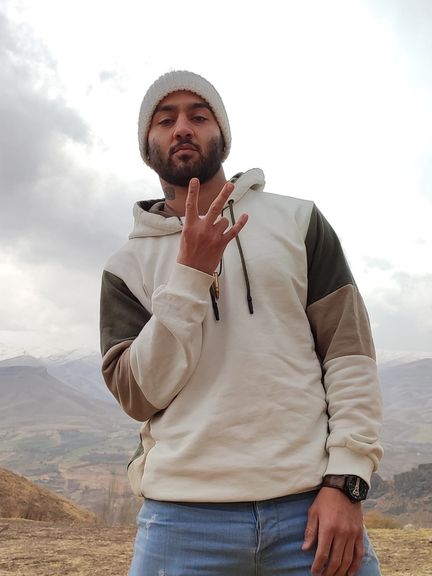
Rights groups fear the Iranian rapper, Toomaj Salehi, jailed for his anti-regime lyrics, will be given the death sentence.
The Center for Human Rights in Iran (CHRI) say due to the severity of the charges he is facing, a death penalty is a grave risk, and urged the international community to lobby for the young man’s release from arbitrary imprisonment.
The group, which is in contact with people close to the rapper, has said that Salehi requires urgent medical treatment which cannot be provided from within the prison.
Salehi, 33, an artist mostly known for his protest songs about Iran's social issues and injustice by the government, was arrested in October after joining street protests that had erupted across the country in September after the death in custody of Mahsa Amini.
His arrest came shortly after his interview with the Canadian Broadcasting Corporation, calling the regime “a mafia that is ready to kill the entire nation... in order to keep its power, money and weapons”.
The 33-year-old metalworker from Esfahan is one of dozens of members of the artistic and entertainment community who have been arrested since the protests began as the regime struggles to contain the mass of discontent across the country.
CHRI Executive Director Hadi Ghaemi, said: “Toomaj rapped about political and social issues that Iranian authorities have long tried to conceal from domestic and foreign audiences to ward off criticism of their repressive policies."
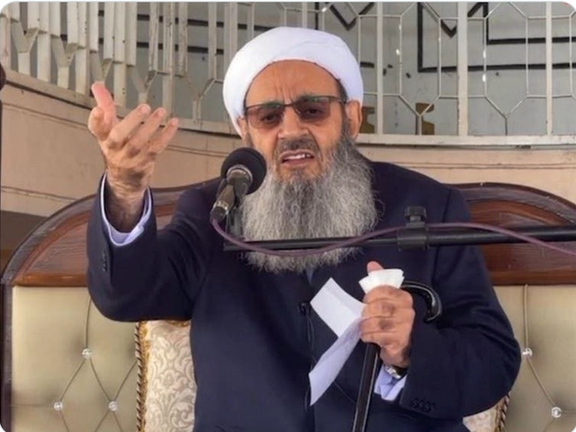
Zahedan has been a scene of regular protests for the past several months with its Sunni cleric Mowlavi Abdolhamid delivering Friday prayer sermons decrying regime atrocities.
April 7 was the 27th Friday in a row that the people of Zahedan held demonstrations in support of the “Women, Life, Liberty” movement after listening to Friday prayer sermons by Abdolhamid, who has proven to be the unofficial voice of the country’s Sunni population, constituting approximately 10% of Iran's 88 million population.
While the regime had shut down the internet in the city again, its citizens held another round of rallying, which was held in silence again to respect the holy month of Ramadan.
Abdolhamid’s speech on Friday was mainly themed around the crackdown on the women who reject the Islamic Republic”a mandatory hijab rules and the mismanagement in the country that has led to serious economic woes.
While recommending women to “respect” hijab laws, he said that Iranian women are "angry because they feel that their rights are not respected."Abdolhamid claimed that women are respected in Islam and different cultures, adding that "violent confrontations" with women by the police and hijab enforcers will not bear positive results.
Implicitly referring to the recent détente between Tehran and Riyadh, he said that the internal developments of the country are “10 times more important” than foreign relations. The government must "establish a relationship with its people," he added.
The Sunni majority city’s top cleric also repeated calls for the release of political prisoners and investigation into the killing of protesters in the Sistan-Baluchestan province, especially on the September 30, 2022, often called the Bloody Friday.
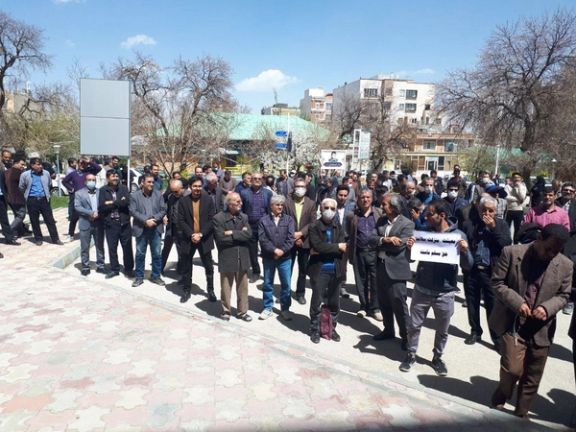
Iran's security forces Thursday violently attacked teachers’ protests in Tehran and Karaj, detaining several some of whom were reportedly freed a few hours later.
According to citizen reports on social media, hundreds of police who were present in Tehran since morning outside and around the ministry of education violently prevented teachers from convening and holding their rally.
“At first around 500 uniformed police blew in their whistles together to disperse the teachers … Plainclothes agents and the police pulled women’s hair and dragged them to their vans and beat up several men and women,” a teacher told the Iranian Teachers’ House (ITH), adding that those who intended to join the rally were either dispersed or detained in the streets nearby and there were only between 200 to 300 outside the ministry.
ITH said the release of all detained teachers had yet not been confirmed. “Such brutality against teachers who have thus far protested in the most civil and dignified manner is highly regrettable and a shame for the authorities and the vicious plainclothes agents and police who are against the people,” ITH said while stressing that teachers will continue their protest action in the future.
Teachers chanting outside the education department of Robat Karim
Security forces also managed to prevent a rally from forming in the city of Karaj, capital of Alborz Province. According to teacher’s account published on the Telegram channel of the Coordination Council of Iranian Teachers Trade Association (CCITTA), security forces clashed with teachers most of whom were women and arrested a male teacher. They would not even allow anyone to stop by the side of the street, one of the teachers said.
In some other cities including Kermanshah, the capital of, Kermanshah Province, Hamedan and Malayer in Hamedan Province, Neyshabur in the northeastern Khorasan-e Razavi, and Robat Karim to the south of Tehran teachers managed to hold their rallies.
In these peaceful rallies teachers chanted their demands including the release of Mohammad Habibi, spokesperson of Iranian Teachers Trade Association and other colleagues.
Habibi was sent back to prison Wednesday less than two months after being released on Supreme Leader Ali Khamenei’s partial amnesty of protesters and some activists. According to his family, he was taken from the school where he teaches to his home and taken away to prison. His wife Khadijeh Pakzamir said in a tweet Thursday that in a phone call from Tehran’s Evin prison, Habibi said security forces had assaulted him in the vehicle on the way to prison.
Teachers demanding the release of Mohammad Habibi outside the education department of Kermanshah
In Ahvaz, the capital of the southwestern Khuzestan Province, protesting teachers who were joined by some parents also protested against the continued poisoning of schoolgirls and the ministry’s threats against students over compulsory hijab.
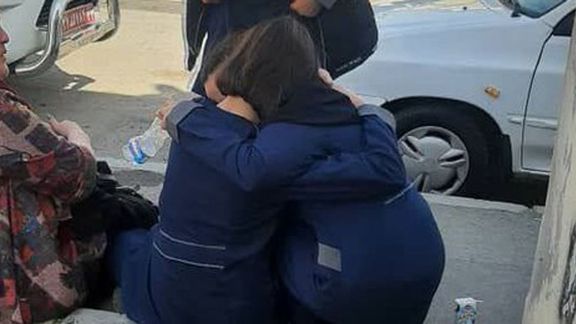
In a statement Tuesday, the ministry said students who do not comply with the compulsory hijab rule will not be allowed to attend classes. Similar threats have been made against university students.
Earlier this week, Teachers’ trade associations called for rallies outside the ministry of education in Tehran and education departments in other cities Thursday to protest the ministry’s failure to address their long-held grievances over paygrades, low salaries, and the government’s failure to pay their wages before March 21 when the Iranian New Year Holidays began.
The minister of education Yousef Nouri resigned Monday amid widespread discontent for the delay in the payment of salaries, apparently due to lack of proper coordination with the Planning and Budget Organization over the payment of approved raises.
Teachers have threatened to stage street protests in May if their demands are not met.
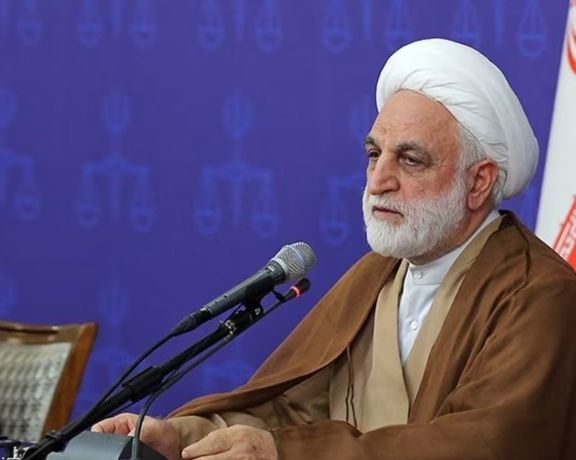
Echoing recent remarks by Iran’s ruler Ali Khamenei, judicial authorities say those who oppose compulsory hijab rules are in league with intelligence agencies of ‘enemies’.
Two days after Khamenei’s assertion that flouting hijab is “religiously and politically haram,” Iran's Chief Justice Gholamhossein Mohseni-Ejei said women and girls who are not willing to abide by the mandatory Islamic dress code regulations and appear in public without headscarves are "linked to foreign spy agencies".
Without providing any documents to prove his claim, he said, "Today, the enemies are advancing their conspiracies in various ways and plan to fuel deviance in our society."
Threatening those who defy hijab rules with stricter punishment, he said that “the enemies are trying to tie the hijab issue to politics.” Earlier in April, he warned of strict punishment for women flouting hijab rules.
Also on Thursday, Mohammad Mossadegh, the first deputy head of the judiciary, warned, the judiciary “will deal seriously with the enemies and norm-breakers who cooperate with the spy services in promoting unveiling in Iran."
Alireza Panahian, a spokesman of Khamenei’s office and the head of the Supreme Leader's think tank for universities, supported the sentiments, saying "We must make a change in our religious teachings, this situation is no longer tolerable when we see this amount of religious aversion in the society.” However, he added some balance by asserting that atheism in society is not prevalent, and that “people have not revolted against religion.”
The remarks came following Khamenei’s Tuesday speech, during which he claimed that foreign intelligence services were encouraging Iranian women to disobey mandatory hijab.